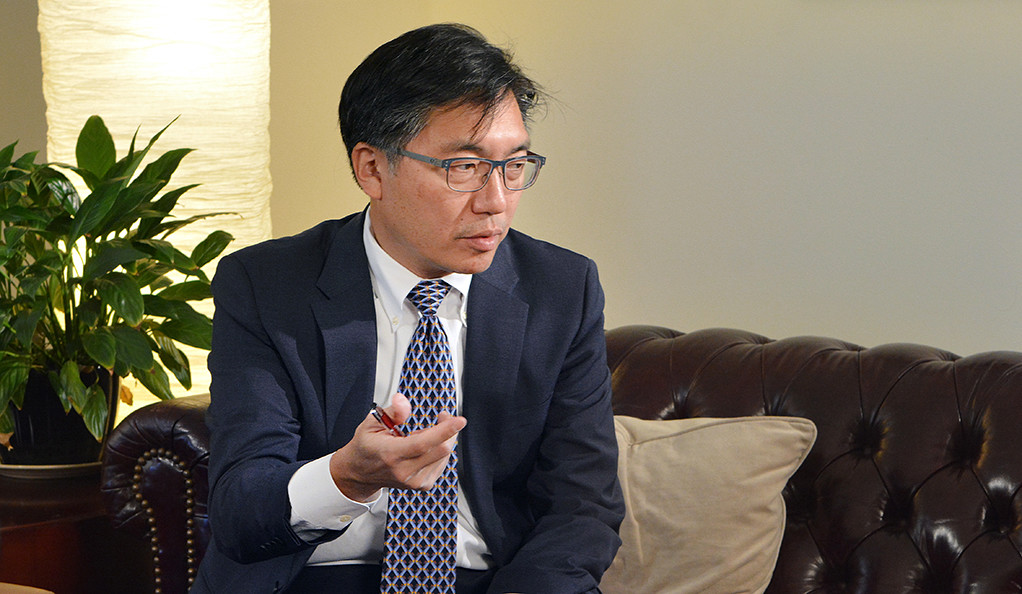
Yale College will adopt a universal pass/fail policy for this semester’s grades, according to a Tuesday morning announcement from Yale College Dean Marvin Chun.
The news comes after weeks of polarizing debate that swept through the University and its peer schools, as the novel coronavirus outbreak continues to alter traditional higher education plans. Chun’s email follows a second faculty member poll that showed 55 percent support for the mandatory grading system and 40 percent in favor of the optional Credit/D/Fail policy Yale implemented last month. Those survey results deviated from the first poll, in which only around 28 percent of respondents voted in favor of a proposed universal grading system.
The changes mean that the College will forgo letter grades and, instead, students will receive a “pass” or “fail” on their transcripts. According to the Committee on Teaching and Learning report — circulated among faculty members before the second vote — students who complete “outstanding” work may receive narrative commendations from faculty. These commendations will not appear on students’ transcripts, the report states.
“With majorities of faculty and students supporting the universal pass/fail policy, this decision is final,” Chun wrote in his announcement. “I will no longer consider appeals, and I will now focus on implementing the policy.”
When the first faculty poll sharply departed from the student majority for a mandatory grading policy, another meeting — and an additional faculty survey — was scheduled for Monday. This second poll ended with confusion among some instructional faculty members who attended the meetings but did not receive a link to vote. Still, Chun wrote in a statement to the News late Monday evening that he believes the results will be “representative and valid.”
The previous faculty poll received 340 responses. This one, which was open for just five hours on Monday evening, received 537 from those eligible to vote, Chun wrote.
“Although I regret that the decision extended into this week, the faculty needed the time to ensure a thorough and inclusive discussion for addressing such a complex question that had no easy answers,” Chun said in his Tuesday announcement. “The extra few days were critical in bringing faculty and student views into closer alignment.”
Map by Laura Nicholas, Production & Design Editor.
The grading policy change comes amid widespread undergraduate advocacy for a “universal pass” — a system similar to the one in Chun’s announcement.
A Yale College Council survey of over 4,500 students indicated around 68 percent support for another variant, “universal pass/no-credit,” where classes in which a student receives a failing grade would be struck from the transcript. According to CTL chair Michael Koelle, a universal pass/fail policy “will in effect approximate” universal pass/no-credit, because students this semester have an extended deadline to withdraw from their classes without a record — May 6, the last day of finals.
“It’s incredibly encouraging that both the student body and Yale faculty ultimately came together in order to make an equitable decision that prioritizes tangible wellness and safety over arbitrary grades,” advocate and universal pass organizer Sarah Pitafi ’22 wrote in an email to the News. “Thousands of students have had a momentous burden released from them, thanks to the incredible amount of work and mobilization of hundreds of students fighting for No Fail Yale.”
It remains to be seen how the new grading policy will impact levels of student engagement for the final few weeks of Yale’s spring semester — a key concern among many faculty members who opposed the change. The CTL’s report detailed anonymous instructors’ worries that a universal policy would encourage students to put less effort into their courses. Some, they said, may decide not to show up at all.
But psychology professor Paul Bloom said he thinks these professors are “mistaken.”
“I believe that most of the students in my Introduction to Psychology course are there because they are interested in psychology, not because they want a good grade,” he wrote in an email to the News. “And so I honestly expect those students who have been able to attend class so far to continue to do so — to watch the lectures, do the readings, and attend the sections.”
Yale College classes end April 24, according to the academic calendar.
Updated: April 7, 11:33 p.m.
Matt Kristoffersen | matthew.kristoffersen@yale.edu







